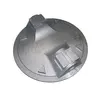Mobile:+86-311-808-126-83
Email:info@ydcastings.com
4d56 exhaust manifold
Understanding the 4D56 Exhaust Manifold Performance and Functionality
The 4D56 engine is a popular choice among diesel enthusiasts, renowned for its robust performance and reliability. Commonly found in various Mitsubishi vehicles, the 4D56 engine is celebrated for its torque and efficiency, making it a go-to option in both commercial and recreational applications. A critical component in the overall performance of the 4D56 engine is its exhaust manifold, which plays a pivotal role in the engine’s functionality and efficiency.
The Role of the Exhaust Manifold
The exhaust manifold is the part of the engine that collects exhaust gases from the cylinders and directs them to the exhaust system. The efficiency of this component directly affects the performance of the engine. In the case of the 4D56, its exhaust manifold is designed to handle the high temperatures and pressures generated by the combustion process in a diesel engine.
A well-designed exhaust manifold can improve exhaust flow, reduce back pressure, and ultimately enhance engine performance. For the 4D56, the manifold is typically made of cast iron or stainless steel, materials chosen for their durability and heat resistance. The manifold must withstand extreme temperatures and corrosive gases, making it essential for longevity and performance.
Performance Enhancements
Upgrading or optimizing the exhaust manifold of the 4D56 can lead to significant performance gains. Aftermarket options often feature improved designs that enhance airflow, which can result in better turbocharger efficiency and improved engine response. Enhanced exhaust flow can help in lowering exhaust gas temperatures, which is vital for maintaining engine health, especially under heavy loads or in towing situations.
4d56 exhaust manifold

One popular modification for 4D56 enthusiasts is the installation of a turbo manifold, which can facilitate a better flow of exhaust gases to the turbocharger. This modification can lead to a more substantial power increase, as the turbocharger works more efficiently when fed with a steady and optimal flow of exhaust gases.
Common Issues
Like any engine component, the exhaust manifold can suffer from wear and tear. Common issues include cracks and leaks, which can lead to exhaust fumes entering the engine bay, reduced performance, and even potential damage to other engine components. Regular inspections are essential to catch these problems early. Signs of an exhaust manifold issue may include a noticeable increase in engine noise or a drop in performance.
If a crack is detected, it’s crucial to address the issue immediately. While minor leaks may be patched, more significant cracks often require either welding or, in some cases, complete replacement of the manifold. For those looking to replace their exhaust manifold, sourcing quality aftermarket or OEM parts is advisable to ensure compatibility and performance.
Conclusion
The exhaust manifold of the 4D56 engine is a crucial component that influences overall engine performance and efficiency. Proper maintenance and, when necessary, upgrades can lead to enhanced performance, making the 4D56 a top choice for many diesel vehicle owners. Recognizing the manifold's importance not only helps in optimizing performance but also ensures the longevity and reliability of the engine. For enthusiasts looking to get the most out of their 4D56, paying attention to the exhaust manifold can make all the difference in achieving peak performance.
-
Valve Body Acts as the “Heart” of Flow ControlNewsMay.19,2025
-
Understanding the Importance of ImpellersNewsMay.19,2025
-
Importance of Automobile Water PumpsNewsMay.19,2025
-
How an Engine Oil Pan Works to Keep Your Car LubricatedNewsMay.19,2025
-
Common Materials Used in Pump Impeller ManufacturingNewsMay.19,2025
-
Ball Valve Casting in Modern Pipeline SystemsNewsMay.19,2025











